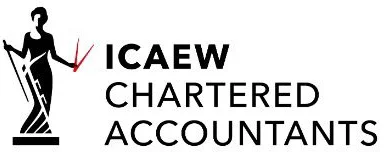Are you a Landlord or a property owner selling property or other assets in the UK? Don’t let Capital Gains Tax catch you off guard. At HHM Chartered Accountants and Tax Advisors, we provide you with expert guidance on how you calculate, optimise, and report your CGT liability with confidence.

EXCELLENT Based on 44 reviews
Based on 44 reviews

 Dulan Mayan2025-07-10
Dulan Mayan2025-07-10Trustindex verifies that the original source of the review is Google.
Excellent advice on property tax from the team at HHM. They’ve helped me with rental income, capital gains and VAT on serviced accommodation. Really know the property sector inside out.
 amir farsaloon2025-06-29
amir farsaloon2025-06-29Trustindex verifies that the original source of the review is Google.
Amazing tax planning, thank you Daniel
 Waheed Hussain2025-06-28
Waheed Hussain2025-06-28Trustindex verifies that the original source of the review is Google.
Brilliant accountants for anyone dealing with HMRC worldwide disclosure. They really know their stuff when it comes to overseas tax matters. Highly recommend HHM for international tax issues.
 IntenXive2025-06-28
IntenXive2025-06-28Trustindex verifies that the original source of the review is Google.
We’ve used HHM for mortgage advice, property development finance and tax planning across our HMO portfolio. They achieved results even when other brokers told us it couldn’t be done. Professional, reliable and always on hand to support – highly recommend to any serious property investor.
 24s. ma2025-06-28
24s. ma2025-06-28Trustindex verifies that the original source of the review is Google.
HHM are fantastic if you’re a foreign investor looking for mortgage and tax guidance in the UK. Clear advice, fast service and they really understand cross-border finance.
 Tasnim2025-06-24
Tasnim2025-06-24Trustindex verifies that the original source of the review is Google.
Daniel, Aaron and Karam have been great!
 Karo S2025-06-16
Karo S2025-06-16Trustindex verifies that the original source of the review is Google.
Very expensive for little value and basic advice. Thought the premium price would be justified by well researched, thorough advice but this was not the case. Would recommend looking for a different accountant, especially when dealing with remittance/foreign income.
 Vista Property Team2025-05-21
Vista Property Team2025-05-21Trustindex verifies that the original source of the review is Google.
We have had a fantastic experience! Always reliable, professional, and friendly, truly goes above and beyond every time. The attention to detail and commitment to providing top-notch service really stands out. Highly recommend to anyone looking for quality and consistency. You won’t be disappointed!
 Scott Moore2025-05-02
Scott Moore2025-05-02Trustindex verifies that the original source of the review is Google.
Daniel followed up with a phone call very quickly after I completed an online request for info. He showed confidence that my tax position was clear (from an HMRC perspective) and offered services for the future.
 Laugh2025-04-28
Laugh2025-04-28Trustindex verifies that the original source of the review is Google.
Amazing service
Capital Gains Tax (CGT) can often feel overwhelming for both UK residents and non-UK residents. Whether you are selling a second property or navigating the complexities of CGT on commercial or foreign property, it’s essential to understand your obligations and benefits. At HHM Chartered Accountants and Tax Advisors, we’re here to guide you through every step of the process, ensuring you know exactly how to report and pay Capital Gains Tax on UK property.
Capital Gains Tax is the tax you pay on the profit when you sell or dispose of an asset, such as property. This includes residential, commercial, and rental properties. The gain is calculated as the difference between the sale price and the purchase price, adjusted for any allowable expenses.
You may have to pay capital gains tax if you make profit on the sale of a property that is not your home. For example:
When it comes to capital gains tax on inherited property, it’s crucial to know that you may be liable for CGT when you sell the property, even though you did not purchase it. However, you may also qualify for some reliefs in this context. The gain is calculated based on the property’s market value at the date of inheritance, not the original purchase price. This means that if you sell the property later for a profit, CGT will apply to the increase in value since you inherited it.
If you gift a property, CGT may still apply based on its market value at the time of transfer. This means that you may face a tax liability when gifting property to someone else. To better understand how gifting property affects your CGT liability, book a free consultation today to speak with our tax experts.
If you own a rental property, understanding capital gains and rental property is vital. When you sell a buy-to-let property, you must calculate the capital gains tax on your profit. Allowable costs, such as agent fees and improvements to the property, can reduce your gain. In some cases, reliefs like Letting Relief may apply.
It’s essential to report and pay capital gains tax on UK property sales. this must be done within specific timelines. These timelines depend on the date at which the property was sold or the property completed.
If you sold a residential property before 6 April 2020, you must report your gains on your Self Assessment tax return for the tax year following the sale.
If the sale was on or after 6 April 2020, you will need to calculate your gain and report it to HMRC within:
Fortunately, you have an annual exempt amount each year. This can be deducted from your total gains to reduce your capital gains tax liability. Also, you must also report all sales of UK Property or land (residential and non-residential) if you are not a UK resident, even if you have no tax to pay.
Navigating the complexities of capital gains tax for properties can be challenging, but you don’t have to do it alone. Our team at HHM Chartered Accountants and Tax Advisors is here to provide expert guidance tailored to your specific needs. Whether you’re selling a second property, managing rental assets, or dealing with inherited property and capital gains tax, we’ll help you optimise your tax strategy and ensure compliance.

Save time and reduce stress with our precise bookkeeping, payroll, online accounting, end of year reporting, and management accounting solutions tailored to your needs.
File with confidence and avoid costly errors. Our tax experts handle self assessment and taxes on income from all sources including foreign income, capital gains, inheritance, and self-employment, making tax season stress-free.
Protect your business and maximise your profitability with comprehensive tax services, including corporation tax, CIS and VAT. We support you to stay compliant and maximise savings.
Gain peace of mind with professional support during HMRC compliance checks. We manage the process for you, minimising risk and stress.
Stay compliant and future-ready with VAT and Making Tax Digital support that’s easy, accurate, and ensures no deadlines are missed.
Keep more of what you earn with proactive tax planning strategies that optimise your finances and reduce your tax burden.
With deep expertise in UK tax, our team is well-versed in all aspects of compliance and tax-saving opportunities. We keep up with the latest tax regulations, ensuring you always receive accurate, strategic advice tailored to your specific circumstances.
At HHM, we value integrity and transparency, and our clients trust us to act in their best interests. We’re more than just tax accountants—we’re an extension of your team, here to support you at every step.
Capital gains tax isn’t just about the present; it’s about planning for the future. Our proactive approach to tax planning means we identify opportunities and anticipate challenges before they arise, helping you make the most of your investments over the long term.
We know every client’s needs are different. By getting to know you and your financial goals, we provide advice that’s as individual as you are. From tailored tax planning to ongoing support, we’re dedicated to helping you make confident, informed decisions.
If you have a second property which is not your main residence, capital gains tax may arise on its sale. The amount of tax depends on your tax band. If you’re a higher or additional rate taxpayer, the amount you pay will depend on the date and type of the gain. Gains from 30 October 2024 onwards is 24% on gains from residential property.
If you’re a basic rate taxpayer, the rate you pay depends on the size of your gain, your taxable income and whether the gain is from a residential property or other assets. Visit HMRC for further information or book a free consultation to speak with out tax experts.
Capital Gains Tax (CGT) may apply when you sell an inherited property if it has appreciated in value since the date it was inherited. The gain is calculated from the date of inheritance to the date of sale, with tax only due on the profit above the annual CGT allowance.
Privacy Policy
Legal Disclaimer
Copyright © 2025 kms Accountants All Rights Reserved. T/A HHM Accountants.
kms Accountants Ltd
Company number: 15050263